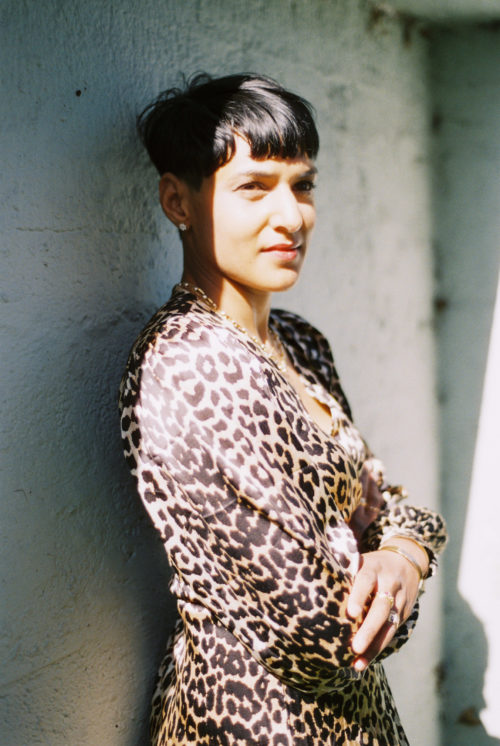Finding the Form with Anji Samarasekera
By Anji Samarasekera
“Trophy” began as an assignment for a Children’s Literature class that I took in my second to last year of my MFA at the University of British Columbia. I had never written YA Fiction before and wanted to try my hand at composing a piece that would cross-genres and forms–be both adult fiction and YA and function as a short story but also the first chapter of a potential novel.
The seed of the story was a real-life situation. I was pregnant with my second child, conceived via IVF, after years of infertility. My first child, seven years old at the time, was finally going to be a big sister and in my hormonal and grateful state, I kept thinking what if? As in, what if we hadn’t gotten pregnant with our second child? Would it have destroyed our marriage? Anyone who has gone through infertility knows how stressful and heartbreaking the journey is–I feel exceptionally fortunate to have come out of it with my marriage intact—but I could very well imagine things having turned out differently.
Because I was trying to write for younger readers (in addition to adults), I wanted the main character to be a young person and that’s when I struck on the idea of an unplanned pregnancy. I always knew that if we hadn’t been able to get pregnant again, I would mourn that loss for the rest of my life. It would have been a knife in the heart to find out that what I wanted so badly had happened so easily (and so unwantedly) in the body of someone close to me. Making that someone the cherished only daughter of the infertile mother was precisely the complication that I wanted to think about through this story, but from the perspective of that young girl who feels the burden of her parents’ grief acutely.
“The way Wayne loves Harp feels true to not only their relationship but also to my relationship with my own father.”
The setting grew out of my wanting to place a character somewhere we don’t expect her to be. A bi-racial, teenaged girl is not someone we tend to associate with hunting or gun culture. But because of who Harp is and because of how much she loves Wayne, this is a space that feels entirely natural to her. I loved the idea of the two of them sharing a passion, and the tenderness between them was very much an ode to the relationship between my older daughter and her dad. Of course, my husband says that he is nothing like Wayne and that is one hundred percent correct—but the way Wayne loves Harp feels true to not only their relationship but also to my relationship with my own father.
It didn’t take many drafts to get to a “final” version of this story. I had the major elements in place after the first iteration and then subsequent re-writes were mostly dealing with sentences and excesses of language. Places where the imagery gets carried away. There was a lot of cutting because the story started out quite lengthy—over 7000 words. In the editing, I removed large swathes of backstory that would have been necessary for a novel but were distracting in a short story. I also worked with TNQ’s editor, Pamela Mulloy, on the pivotal moment, so that it captured the story’s larger themes while remaining convincing. The story became stronger as a result – at least I think so.
YA is an unfamiliar genre and so writing “Trophy” took me out of my comfort zone as a writer. On the other hand, the emotional terrain that the story covers are recurring themes in my work. I’m thrilled to be able to share “Trophy” with TNQ’s readers and who knows, it may very well become something bigger and I may become an accidental YA author after all!

Anji Samarasekera writes fiction – both short and long – from Vancouver which is on the unceded territories of the xʷməθkʷəy̓əm(Musqueam), Sk
Author photo by Erin Flegg, 2021.
Cover image by Sergei Akulich on Unsplash

